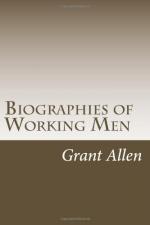During the three years that Garfield was at this place, he studied hard and regularly, so much so that at one time his brain showed symptoms of giving way under the constant strain. In the vacations, he took a trip into Vermont, a romantic mountain state, where he opened a writing school at a little country village; and another into the New York State, where he engaged himself in a similar way at a small town on the banks of the lovely Hudson river. At college, in spite of his rough western dress and manners, he earned for himself the reputation of a thoroughly good fellow. Indeed, geniality and warmth of manner, qualities always much prized by the social American people, were very marked traits throughout of Garfield’s character, and no doubt helped him greatly in after life in, rising to the high summit which he finally reached. It was here, too, that he first openly identified himself with the anti-slavery party, which was then engaged in fighting out the important question whether any new slave states should be admitted to the Union. Charles Sumner, the real grand central figure of that noble struggle, was at that moment thundering in Congress against the iniquitous extension of the slave-holding area, and was employing all his magnificent powers to assail the abominable Fugitive Slave Bill, for the return of runaway negroes, who escaped north, into the hands of their angry masters. The American colleges are always big debating societies, where questions of politics are regularly argued out among the students; and Garfield put himself at the head of the anti-slavery movement at his own little university. He spoke upon the subject frequently before the assembled students, and gained himself a considerable reputation, not only as a zealous advocate of the rights of the negro, but also as an eloquent orator and a powerful argumentative debater.
In 1856, Garfield took his degree at Williams College, and had now finished his formal education. By that time, he was a fair though not a great scholar, competently read in the Greek and Latin literatures, and with a good knowledge of French and German. He was now nearly twenty-five years old; and his experience was large and varied enough to make him already into a man of the world. He had been farmer, carpenter, canal driver, and student; he had seen the primitive life of the forest, and the more civilized society of the Atlantic shore; he had taught in schools in many states; he had supported himself for years by his own labours; and now, at an age when many young men are, as a rule, only just beginning life on their own account, he had practically raised himself from his own class into the class of educated and cultivated gentlemen. As soon as he had taken his degree, his old friends, the trustees of the “Eclectic Institute” at Hiram, proud of their former sweeper and bell-ringer, called him back at a good salary as teacher of Greek and Latin. It was then just ten years since he had toiled wearily along the tow-path of the Ohio and Pennsylvania Canal.




